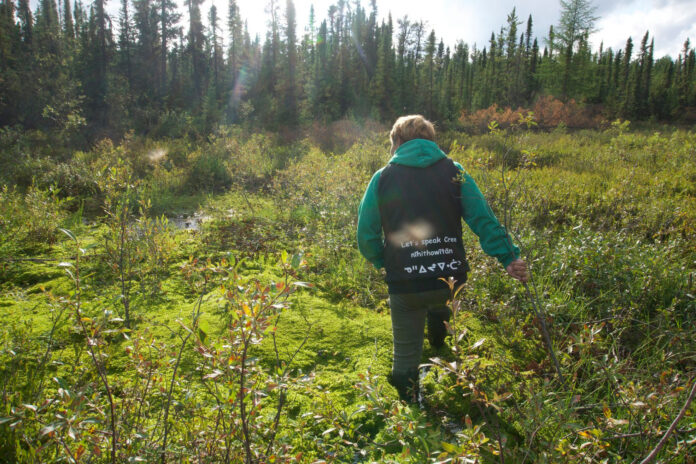
If you have only ever thought of dandelions as a nuisance that just won’t leave your lawn alone, you might be quite surprised to find that dandelions are packed with nutrients and were quite popular in salads during the great depression when anyone could go outside and pick a couple handfuls to eat.
Dandelions aren’t the only plant that gets looked over health-wise. There are plants all around us that are edible or can be used as medicine, just as many of our ancestors used them. Unfortunately, knowledge of plants and the land have not been passed down, just as language and culture are dying out, so too is our relationship with the land.
Fortunately, real studies have been done about the relationship between nature and humans and how beneficial nature is to every one of us. Just as there are programs about language and culture, there are programs about land-based learning, which is something residents of the Athabasca region were able to get a taste of.
The Athabasca Health Authority put together ‘A Walk in the Woods’ where anyone could join and learn about plants in the community.
“The walk was an opportunity for people to just kind of see what was available in their local area,” said Pamela Huerto, Athabasca Health Authority promotions manager, who organized the walks. “For each of the walks we kind of did different environments. For the Black Lake area, we met at like a fishing camp that burned down a few years ago, but kind of gave us an opportunity to see a lot of the new growth there. For more of the Stony Rapids/Black Lake area, we went through the ditches, we dug up some cattails and stuff, kind of the more marshy areas. And then in Fond Du Lac we walked around kind of in town, like just looking at what was growing around at the roads and at the graveyard and stuff that like.”
Although the northern area of the province is a bit more immersed in their language and culture, they, too have lost some of their teachings about plants just as the more southern part of the province has.
“I think it’s really important (to have a relationship with the land) and the Dene, they’re very connected with their language and with the land in other ways,” said Huerto. “But a lot of that plant/food/medicine knowledge has been lost or a bit hidden. Some of the elders maybe know it, but it’s not discussed a lot. So, we were hoping that by having these events we kind of get the conversation flowing and bring back pieces of that.”
Land-based was the way everyone learned hundreds of years ago. Back then it wasn’t land-based learning, it was just learning. It was a part of the day-to-day life just as foraging and hunting was. If so many people can say they learn better by seeing and doing, surely our brains must be wired to learn within the environment we’re learning about and if our brains are wired for that, then there must be benefits to land-based learning.
“Because the Dene are so connected to this land it’s a very important part of healing for them,” Said Huerto. “It’s very culturally important.”
Because land-based learning offers healing to the people, the Athabasca Health Authority plans on doing more of these types of programs.
“The Athabasca Health Authority is looking at a lot of other land-based learning options and programming,” said Huerto. “And the people here actually do it in their own ways too, this year because of COVID they weren’t able to… the Pine Channel pilgrimage or go all the way to Lac St Anne and those pilgrimages are kind of a piece of that land-based learning as well.”
The Walk in the Woods program had a pretty good outcome, with many people not only showing up, but being quite engaged with what they were learning, every teacher’s dream.
“I think it was some of the most successful programming that I’ve seen in the last few years,” Huerto said. “They were very engaged, if they were using their phone it was to take pictures of plants or to look stuff up. Like, it was nice to see how interested they were and beyond that there’s this beautiful book called Boreal Herbal, which we gave to participants and we are ordering more copies for anyone else interested in the community so they can kind of follow up and do some more learning and maybe we can tie it into some future programming.”
Not only did the participants have a good time learning, but the elders were able to share stories of their past, which is a type of teaching of its own.
“It was really positive to see the elders who were able to participate to kind of bring up childhood stories and remedies and things like that. Pieces of their childhood and medicines that they used.” Huerto said.

